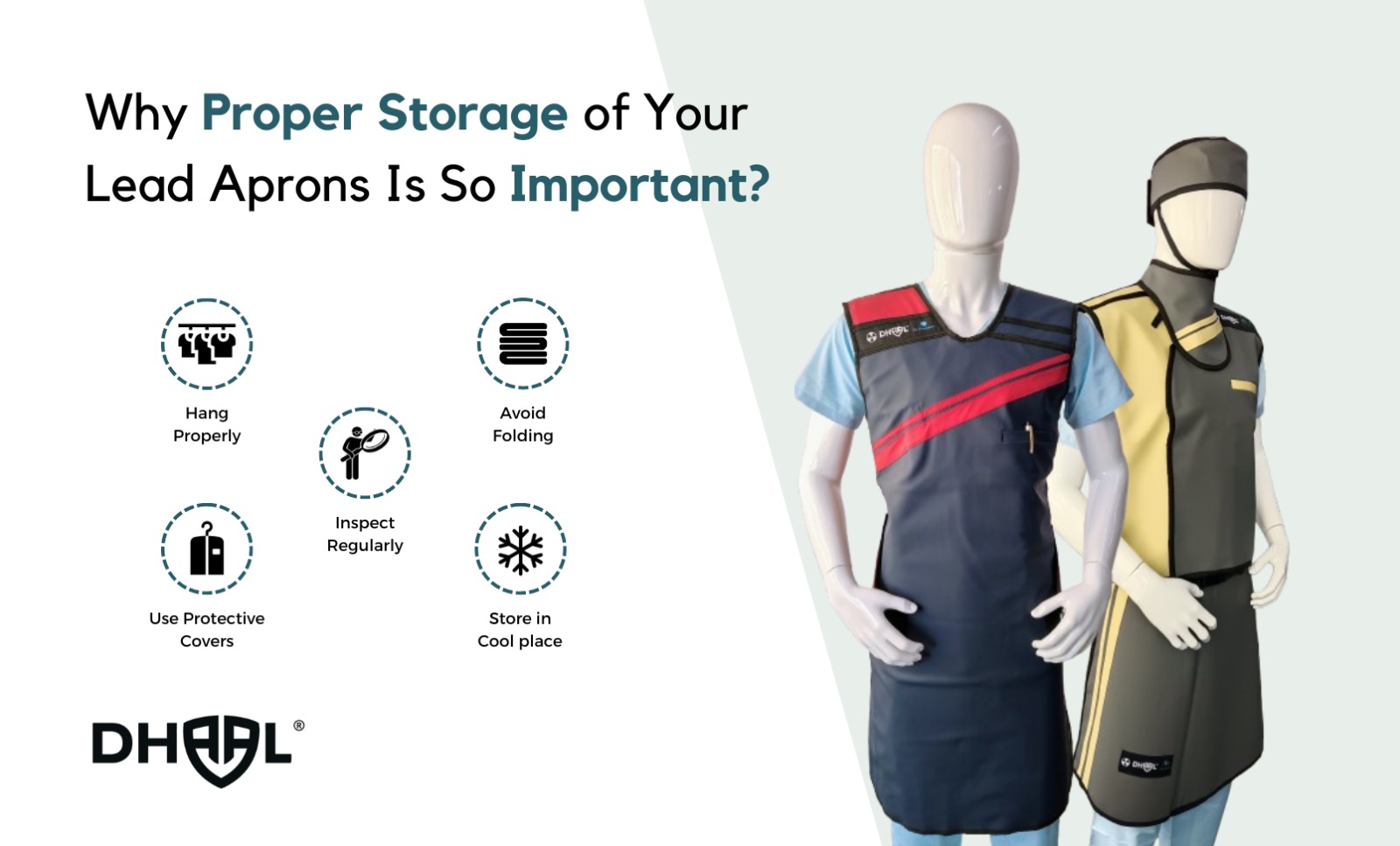
Lead aprons are an essential part of protective gear in environments where radiation exposure is a risk, such as medical imaging, dental offices, or industrial settings. They serve as a barrier, shielding individuals from harmful ionizing radiation during procedures like X-rays, CT scans, or fluoroscopy. However, while lead aprons are designed to offer protection, their effectiveness can be compromised if they are not stored properly. In this blog, we’ll explore why proper storage of lead aprons is so important and how it can help extend their lifespan and maintain their protective capabilities.
- Maintaining Radiation Protection
Lead aprons work by absorbing and attenuating radiation, reducing exposure to the wearer. However, the protective properties of lead can degrade over time if the aprons are subjected to improper storage conditions. Storing them in a way that prevents bending, creasing, or puncturing is critical to maintaining their radiation-blocking ability. If an apron is folded, stored in a cramped space, or subjected to pressure, it can develop cracks or other damage to the lead lining, which will reduce its overall effectiveness. Even small imperfections can make the apron less reliable in protecting against harmful radiation exposure.
- Preventing Physical Damage
Lead aprons are heavy and delicate. The lead lining inside the apron is brittle, and if the apron is improperly stored, it could be damaged physically. Hanging lead aprons by their straps, for example, can cause the straps to stretch or tear over time, making them less secure and harder to wear. Similarly, folding them improperly or storing them under heavy objects can cause creases or cracks that damage the integrity of the material.
Proper storage helps prevent such damage and ensures that the apron remains in good condition for as long as possible. Hanging the apron properly or storing it flat on a surface without heavy items on top are simple ways to keep it safe from physical harm.
- Extending the Lifespan of the Apron
Proper storage doesn’t just protect your lead apron’s ability to shield against radiation—it also extends its lifespan. Lead aprons can be a significant investment, especially for healthcare facilities and medical professionals. If you don’t take care of them, you may find yourself replacing them far sooner than necessary, which can be costly.
By following proper storage practices—such as hanging lead aprons on dedicated hooks, using storage racks or cabinets, and avoiding folding—the apron will retain its form and function, ensuring it lasts for many years. Proper storage minimizes wear and tear and reduces the likelihood of damage that could otherwise lead to the need for replacement.
- Ensuring Safety and Compliance
In regulated industries, such as healthcare, there are strict standards for safety and compliance when it comes to radiation protection. The use of damaged or improperly stored lead aprons could result in non-compliance with workplace safety regulations, leading to fines or legal repercussions. Additionally, patients and employees may be put at unnecessary risk if protective gear is not functioning as intended.
Regular inspection and proper storage of lead aprons ensure that you are adhering to safety standards, keeping your workplace safe and compliant with regulations.
- Organizing and Managing Equipment
Proper storage also makes it easier to keep track of the aprons and ensures they are readily available when needed. Storing lead aprons in an organized manner reduces the risk of confusion and makes it quicker to access them in a time-sensitive situation, such as an X-ray procedure. It also allows you to inspect aprons regularly for any signs of wear, damage, or outdated protective technology, helping you ensure that the right equipment is being used at all times.
- Minimizing Cross-Contamination and Hygiene Issues
In medical environments, proper storage of lead aprons also contributes to maintaining a clean and hygienic workspace. Lead aprons should be stored in areas where they won’t be exposed to contaminants, chemicals, or other substances that could compromise their integrity or cause hygiene issues. For example, if an apron is stored in a dirty or poorly ventilated area, it could harbor bacteria or other pathogens, especially in a healthcare setting where patient safety is a priority.
Using a designated storage system helps ensure that the aprons remain clean and safe for use, minimizing the risks of cross-contamination.
Best Practices for Storing Lead Aprons
To ensure your lead aprons stay in top condition, follow these best practices for storage:
- Hang them properly: Use a dedicated lead apron rack or hanger that allows the apron to hang freely. Avoid hanging them by the straps, as this can damage them over time.
- Avoid folding: Never fold a lead apron, as this can cause creases and damage the protective material inside. Store them flat whenever possible.
- Use protective covers: If you’re storing lead aprons for long periods, consider using protective covers to shield them from dust, debris, and potential physical damage.
- Store in a cool, dry place: Excessive heat or humidity can degrade the materials inside the apron, so store them in a controlled environment away from extreme temperatures.
- Inspect regularly: Make a habit of checking your lead aprons for signs of wear and tear. Look for cracks, tears, or signs of compression, which could indicate that the apron needs to be replaced.
Conclusion
The proper storage of lead aprons is an essential part of maintaining their protective capabilities, ensuring they provide reliable radiation shielding when needed most. Whether you work in a medical, dental, or industrial environment, storing your aprons properly will extend their lifespan, reduce the risk of damage, and help you stay compliant with safety regulations. By following best practices for storage, you can protect both the integrity of your equipment and the safety of the people who rely on it.


